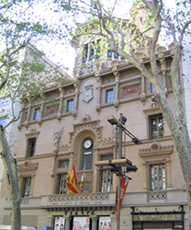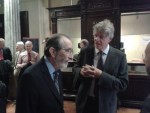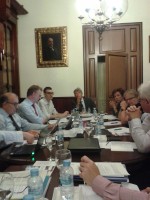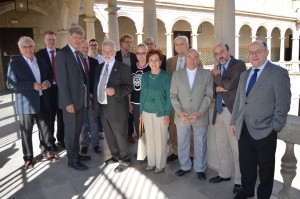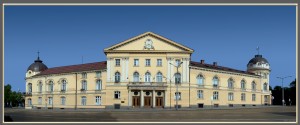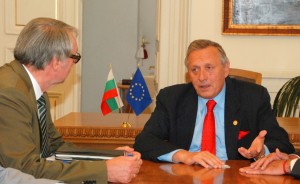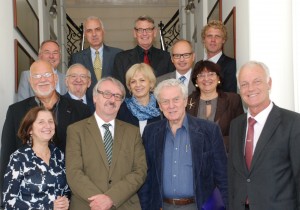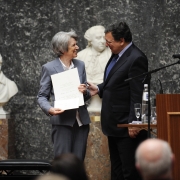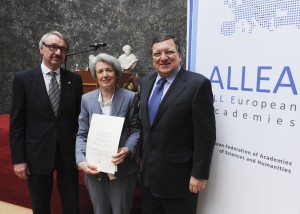Joint Meeting of ALLEA Permanent Working Groups Science & Ethics and Intellectual Property Rights
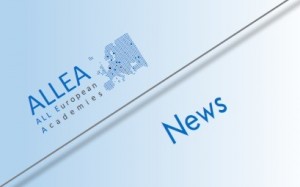 Following an agreement at the ALLEA General Assembly in Oslo in April 2014, the two ALLEA permanent working groups on Science & Ethics and Intellectual Property Rights (IPR), held a first-ever joint meeting in Munich on 24 November 2014.
Following an agreement at the ALLEA General Assembly in Oslo in April 2014, the two ALLEA permanent working groups on Science & Ethics and Intellectual Property Rights (IPR), held a first-ever joint meeting in Munich on 24 November 2014.
The meeting sought to provide opportunities for closer interactions between the expert groups and to identify fields of mutual interest and for synergetic cooperation. It took place on the premises of the Max-Planck Institute for Innovation and Competition on the invitation of Professor Joseph Straus. ALLEA President Professor Günter Stock joined the meeting for a discussion on possible cross-cutting issues that the working groups could jointly address in future activities. The ALLEA Board was represented by Professor Carlo D’Adda.
Issues for possible joint actions included a follow-up to the statement “Enhancement of Open Access to Scientific Publications”, prepared by the working group on IPR in late 2013, elaborating positions on most recent developments in the Open Access agenda and particularly adding deliberations on ethical issues to the existing ALLEA statement. Other topics included the patentability of stem cells and the risks of dual use of scientific results. The working group chairs will take the results and proposals of the joint meeting to their respective groups in order to discuss and agree upon how to concretely contribute to the envisaged future activities.
The chairs of the permanent working groups, Professor Göran Hermerén (Science & Ethics) and Professor Joseph Straus (IPR), closed the meeting by declaring the shared interest in continuing the direct collaboration of the ALLEA groups and identifying further topics of relevance for future collaboration. The first results of the two groups’ collaboration will be presented at the ALLEA General Assembly in Lisbon.

